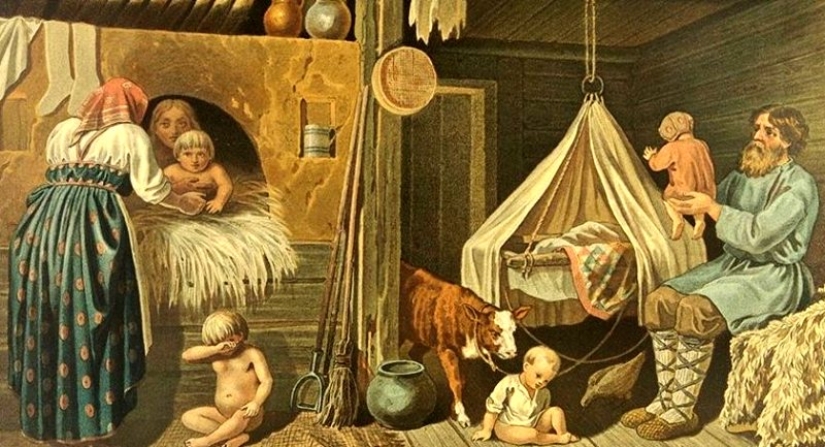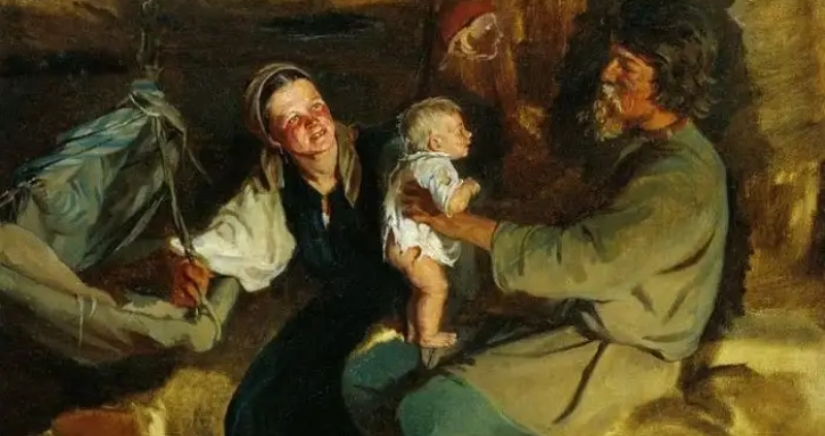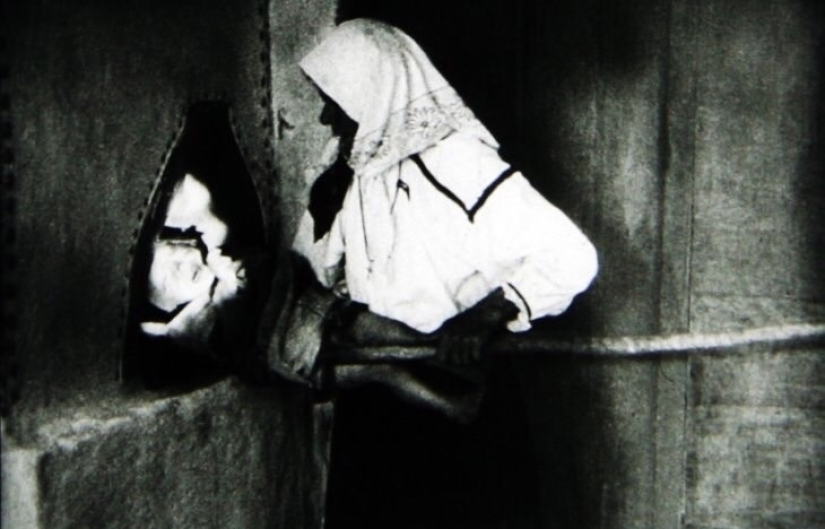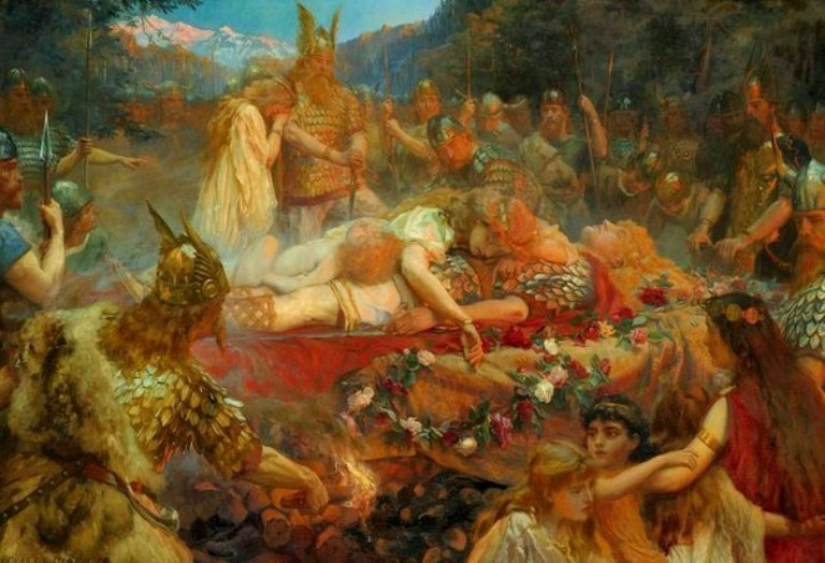Salting, dying and other strange rituals practiced in Rus'
Every nation has its own customs and rituals. Now this is no longer so relevant, but once rituals accompanied a person throughout his life, from birth to death. Some of them have survived to this day, with or without modifications. And there are those that have long been forgotten and only historians know about them. Many of us love stories about the life of peoples inhabiting distant exotic countries. But it turns out that no less strange rituals existed in Rus'.

The birth of a child in Rus' was accompanied by several rituals. But the very first thing was cutting the umbilical cord. If a boy was born, it was cut at the ax or arrow. It was believed that after this he would grow strong and brave. At the birth of a girl, the umbilical cord was cut on a spindle. This was supposed to make her a good housewife and jack of all trades in the future.

The umbilical cord was tied with linen thread, into which the hair of the parents was woven. According to the ancestors, this was supposed to provide a reliable connection between generations. In some regions, on the day a child was born, they baked special bread with impressions of his feet and palms. It is known that such bread was distributed to relatives. True, no one knows for sure whether they were eaten or kept as a family heirloom.
If a baby was born ahead of schedule, it should be “baked” in an oven “until ready.” The healers, based on some of their signs, determined whether the baby was full-term or not, and if, in their opinion, it appeared too early, they performed the ritual of over-baking. To do this, they prepared rye dough in water, in which the newborn was wrapped.

The child was completely transformed into a pie filling - only holes for the nose and mouth remained in the dough. In this form, the baby was placed in a warm oven and waited until he “arrived.” In the old days, it was believed that this procedure would help him gain strength and get stronger. The same baking was carried out if it was necessary to change the fate of the baby.
Babies were also salted. This ritual was performed not only with premature babies, but also simply with babies in poor health. The child was placed on the table and thoroughly coated with moistened salt. It was impossible to miss a single centimeter of the body, so the salt even got into the eyes and nose. Such a salted baby was wrapped in rags and left for several hours. It was a cruel ritual, since after it the delicate children's skin could peel off in rags. This did not bother anyone, because the new skin was supposed to be healthier and more beautiful.
The next important moment in the life of a child after his birth was baptism. On this day, a special porridge was cooked, which was generously seasoned with hot spices. They used all the hottest things - pepper, mustard and even horseradish. The porridge was intended for the child's father - it was served to him in a fur hat. The hat had to be new and expensive so that the child would grow up rich and happy.

The father had to eat everything to the end, without wincing and praising the spicy dish. This dish was not offered to the guests present at the festive table. When the parent coped with a difficult task, everyone began to scream, make noise and splash wine around the house. The ritual was supposed to drive away evil spirits from the child and his family.
One of the most terrible and incomprehensible rituals of our ancestors for modern people was the killing of relatives. Before the advent of Christianity, a mother had the right to kill her newborn daughter if she believed that the family was already too large. It was forbidden to do this to a son, because the boy grew up to be a breadwinner, a successor to the family, and a protector.

Children could also kill their elderly parents if the old people became a burden. This could happen due to family poverty, serious illness or extreme old age. They often did this to disabled people and soldiers who were seriously injured. This ritual was not associated with cruelty, but, on the contrary, with mercy. A weak and helpless person was considered deeply unhappy and helping him die was a good deed.
This custom existed in Rus' before the adoption of Christianity, and then it was banned as barbaric. If the husband died, the wife believed that she should not live any longer. Women voluntarily entered the funeral pyre on which their husband's body was burned. Scientists believe that this ritual is associated with the belief that a man will quickly achieve bliss in the afterlife if he is accompanied by his wife.

Widows who did not want to die could be thrown into the fire by their spouse's relatives. Cremation was carried out solemnly and was accompanied by rituals and chants. The ashes were placed in an urn, which was placed at a crossroads. The death of the Slavs was a holiday, because death relieved them of everyday sorrows and the very fear of death. But not all Slavic tribes practiced burning and dying. Some followed the usual tradition of burial in a grave.
Recent articles

It's high time to admit that this whole hipster idea has gone too far. The concept has become so popular that even restaurants have ...

There is a perception that people only use 10% of their brain potential. But the heroes of our review, apparently, found a way to ...

New Year's is a time to surprise and delight loved ones not only with gifts but also with a unique presentation of the holiday ...